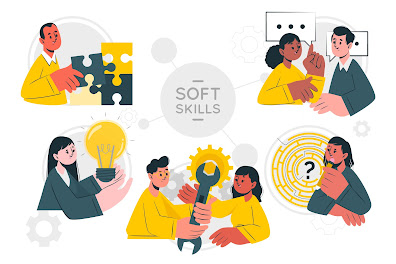Unveiling the Pillars of Fair Assessment in Vocational Education
Introduction
In the world of vocational education, assessment is the compass guiding learners toward success. Imagine assessment as the North Star, providing direction and validation for individuals navigating the vast sea of skills and knowledge. In this blog post, we embark on a journey to explore the foundational principles that form the bedrock of assessment in vocational education. Let's unravel the mysteries behind creating a fair, reliable, and valid assessment process, and understand how these principles align with the ultimate goal of fostering learner success and achievement.
1. The Essence of Fairness in Assessment:
Fairness is the heartbeat of any assessment system. In vocational education, fairness transcends merely giving everyone the same set of questions. It's about ensuring that every learner, regardless of background or circumstances, has an equal opportunity to demonstrate their skills and knowledge. The principle of fairness dictates that assessments are designed to be inclusive, avoiding any biases that might disadvantage certain individuals or groups.
Think of it like a level playing field where everyone gets a fair shot at showcasing their abilities. Whether you're a seasoned professional or just starting your vocational journey, fairness ensures that the assessment process is unbiased and just.
2. Reliability: The Steady Anchor in Assessment Seas:
Reliability is like the anchor holding the assessment ship steady. In vocational education, reliability means consistency – ensuring that if the same assessment is administered to different learners under similar conditions, it yields consistent results. Imagine taking a math test twice and getting wildly different scores each time – that wouldn't be reliable.
Reliability in vocational assessment is essential for learners to trust the process. It means that the results accurately reflect their skills and knowledge, not just the whims of a particular day or setting. Reliable assessments build confidence, allowing learners to embark on their vocational journey knowing that their abilities are accurately measured.
3. Validity: The True North of Assessment:
Validity is the North Star, guiding assessments toward measuring what they are intended to measure. In vocational education, validity is about ensuring that the assessments align with the skills and knowledge relevant to the industry. Picture this: If you're training to be a chef, your assessment should focus on culinary skills, not your ability to juggle bowling pins.
Valid assessments are not just accurate; they are meaningful. They measure what matters, ensuring that the skills learners acquire are the ones valued by employers and industries. Validity is the beacon signalling that the assessment is not just a box to check but a meaningful step toward career readiness.
4. Aligning Principles with Learner Success:
Now, let's connect the dots. How do these principles – fairness, reliability, and validity – align with the overarching goal of promoting learner success and achievement in vocational education?
Imagine a vocational education journey without fairness. Some learners might face obstacles that have nothing to do with their abilities – unfair challenges that hinder their progress. Fair assessments ensure that everyone has an equal chance to shine, paving the way for success based on merit and effort.
Reliability is the glue that holds together a learner's confidence. If assessments were like a game of chance, learners might question their capabilities. However reliable assessments provide a stable foundation, allowing learners to trust their progress and embark on their vocational journey with confidence.
Now, think about validity as the guardian of meaningful learning. Valid assessments ensure that learners aren't just going through the motions but are acquiring skills that truly matter in the real world. This alignment between assessment content and real-world application prepares learners for success beyond the classroom.
In conclusion, the foundational principles underpinning assessment in vocational education are not abstract concepts but practical tools shaping the journey of learners. Fairness, reliability, and validity work harmoniously to create an assessment process that is not just a checkpoint but a compass guiding learners toward success in their vocational endeavours. As we navigate the seas of assessment, let's keep these principles in mind, ensuring that every learner's journey is guided by the true north of fairness, reliability, and validity.
.jpg)


Comments
Post a Comment